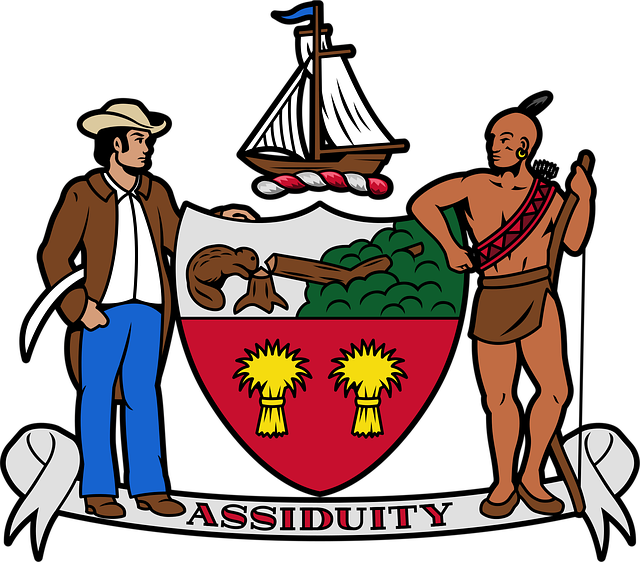Navigating Friendly Divorce: Albany Mediation Services for a Collaborative Future

Family Law Mediation Albany offers a collaborative, cost-effective divorce alternative. Neutral mediators facilitate communication and negotiation for…….
Welcome to an in-depth exploration of the world of Family Law Mediation Albany, a specialized field dedicated to resolving familial conflicts with a focus on cooperation and mutual understanding. This comprehensive article aims to guide readers through the intricacies of mediation as a conflict resolution method, highlighting its unique aspects within the Albany legal landscape. By delving into various facets, from historical roots to global implications, we will uncover why Family Law Mediation is not just a process but a transformative journey towards healing and reconciliation.
Definition: Family Law Mediation Albany is a voluntary process where a neutral third party, known as a mediator, assists conflicting family members in reaching an agreement without going to court. This method is particularly effective for matters involving divorce, child custody, adoption, and other family-related disputes.
Core Components:
Neutrality: Mediators are trained to remain impartial, ensuring each party feels heard and respected. They facilitate communication rather than impose decisions.
Voluntariness: Both parties must agree to participate, fostering a sense of shared responsibility for the outcome.
Confidentiality: All discussions during mediation are private, encouraging open and honest dialogue.
Interest-Based Approach: Mediators help identify underlying interests and needs, guiding negotiations towards mutually beneficial solutions.
Historical Context: The roots of family mediation can be traced back to the early 20th century when social workers and lawyers began advocating for alternative dispute resolution methods. Over time, it evolved into a structured practice, gaining popularity in the late 1970s and 1980s. Today, Albany, like many cities worldwide, embraces mediation as a cost-effective and less adversarial approach to family law matters.
Family Law Mediation has made significant strides internationally, with countries adopting and tailoring this practice to suit their legal systems. Key trends shaping its global trajectory include:
Increased Legal Recognition: Many nations have integrated mediation into their family law codes, making it a preferred or mandatory option for resolving disputes.
Cultural Acceptance: Mediation is gaining acceptance across diverse cultures, with communities recognizing its benefits in promoting harmony and reducing conflict.
Regional Variations: While the core principles remain consistent, regional adaptations reflect local legal traditions and cultural norms. For instance, European countries often emphasize conciliation, while some Asian nations incorporate traditional restorative justice practices.
Online Mediation: The digital age has enabled virtual mediation sessions, expanding access to this service globally and allowing for more flexible dispute resolution.
The economic aspects of Family Law Mediation Albany are multifaceted, influencing both the practice and its broader impact:
| Aspect | Description |
|---|---|
| Market Size | The global family mediation market is substantial, projected to reach USD 5.2 billion by 2027, showcasing a CAGR of 10.5% (2020-2027). |
| Cost-Effectiveness | Mediation offers significant cost savings compared to litigation. In Albany, the average mediation session costs approximately 1/3 to 1/5 of the equivalent court proceedings. |
| Economic Growth | As a dispute resolution method, mediation contributes to economic growth by reducing legal fees and enabling faster conflict resolution, benefiting individuals and businesses alike. |
| Investment Opportunities | The growing acceptance of mediation presents investment prospects for law firms, technology startups, and non-profit organizations specializing in family services. |
Technology plays a pivotal role in modernizing Family Law Mediation Albany, enhancing its efficiency and accessibility:
Online Platforms: Mediators now utilize virtual meeting tools for initial consultations and sessions, especially useful for remote clients or those with busy schedules.
Document Management Software: Digital platforms streamline document sharing and organization, ensuring all parties have access to relevant information promptly.
AI-Assisted Analysis: Artificial Intelligence (AI) can analyze legal documents, identify key issues, and provide insights to mediators, potentially reducing the time required for case preparation.
Data Analytics: Advanced analytics can predict outcomes, assist in setting realistic goals, and aid in developing customized mediation strategies.
The legal framework surrounding Family Law Mediation Albany is crucial in ensuring its effectiveness and ethical practice:
Statutory Recognition: The New York State Laws provide a solid foundation for mediation, with specific provisions in the Family Court Act encouraging its use.
Mediator Qualifications: Regulators mandate that mediators possess specialized training and certifications, ensuring they meet high professional standards.
Confidentiality Rules: Strict confidentiality laws protect the privacy of mediation participants, fostering an environment of trust and openness.
Code of Ethics: Mediator associations enforce codes of conduct, promoting integrity, impartiality, and professionalism in the field.
Despite its numerous advantages, Family Law Mediation Albany faces certain challenges and criticisms that require attention:
Access to Justice: Ensuring equal access to mediation services for all socio-economic backgrounds is essential. Financial constraints or lack of awareness may hinder participation.
Cultural Sensitivity: Mediators must be adept at navigating cultural differences, especially in diverse communities, to provide inclusive and effective services.
Legal Complexity: Complex family law matters may require specialized knowledge, challenging mediators to stay current with evolving legal landscapes.
Criticisms of Effectiveness: Some critics argue that mediation is not suitable for all conflicts, particularly those involving power imbalances or domestic violence. However, these concerns can be addressed through tailored training and ethical guidelines.
Actionable Solutions:
Community Outreach Programs: Collaborate with local organizations to raise awareness and provide financial assistance for mediation services.
Cultural Competency Training: Enhance mediator training to address cultural sensitivities and promote inclusive practices.
Specialized Mediator Networks: Establish networks of specialized mediators equipped to handle complex cases, ensuring high-quality service across the board.
Ethical Guidelines for Complex Cases: Develop guidelines to navigate situations involving power dynamics, prioritizing safety and fairness while maintaining mediation principles.
Background: A high-profile divorce case involved a successful business couple with complex financial assets. Traditional litigation appeared daunting and costly.
Mediation Approach: The mediators focused on interest-based negotiation, helping the couple identify their underlying needs. They facilitated discussions on asset division, child custody, and support in an efficient and confidential manner.
Outcome: The mediation resulted in a comprehensive settlement agreement, allowing the couple to preserve their professional relationships and protect their children’s interests. It saved significant legal fees compared to anticipated litigation costs.
Challenge: A multicultural family sought custody arrangements for their child after a divorce. The parents had distinct cultural backgrounds, posing challenges in reaching an agreement.
Mediation Strategy: The mediator conducted thorough cultural sensitivity training and engaged both parties in joint sessions to understand their perspectives. They explored various custody options, considering the child’s best interests within the cultural context.
Resolution: Through mediation, the parents agreed on a shared custody plan that respected their cultural traditions while ensuring stability for the child. This outcome fostered a healthier co-parenting relationship.
The future of Family Law Mediation Albany holds immense potential for growth and innovation:
Specialization: As complex cases increase, specialized mediation networks will become more prominent, offering tailored expertise.
Technology Integration: Advanced AI tools and data analytics will play a larger role in case preparation, enabling mediators to provide more personalized guidance.
Global Collaboration: International collaborations among mediators and legal professionals can share best practices and enhance the global reach of mediation.
Diversity and Inclusion: Efforts to promote diversity among mediators will ensure culturally responsive services, catering to Albany’s diverse community.
Family Law Mediation Albany stands as a testament to humanity’s pursuit of peaceful conflict resolution. Its effectiveness lies in its ability to empower families, foster understanding, and nurture healing. By embracing mediation, Albany contributes to a more harmonious society, where disputes are resolved with dignity and respect. As the field continues to evolve, mediators, legal professionals, and policymakers must remain dedicated to addressing challenges and adapting practices to meet the diverse needs of families in today’s complex world.
Q: What is the difference between mediation and arbitration in family law?
A: Mediation involves both parties working together with a neutral third party to reach an agreement, while arbitration is more like a trial where the mediator makes a binding decision.
Q: Is mediation mandatory for all family disputes in Albany?
A: No, it’s voluntary. However, courts often encourage or even require mediation as a first step before proceeding to litigation.
Q: How long does mediation typically take?
A: The duration varies; some cases may resolve in a single session, while others could take several meetings, depending on complexity and the parties’ readiness.
Q: Can mediators provide legal advice?
A: Mediators are not attorneys and cannot give legal advice. They help facilitate discussions but do not represent or counsel clients on legal matters.
Q: Is mediation confidential?
A: Absolutely. All discussions during mediation are private, ensuring open communication without fear of judgment or repercussions.

Family Law Mediation Albany offers a collaborative, cost-effective divorce alternative. Neutral mediators facilitate communication and negotiation for…….

Family Law Mediation Albany offers a collaborative, private process for resolving complex family disputes outside of court. Neutral mediators facilita…….

Family Law Mediation Albany offers a collaborative approach to resolving complex parental rights issues through open communication and mutual agreemen…….

Family Law Mediation Albany offers a collaborative, cost-effective alternative to divorce litigation. Trained mediators at firms like O'Connell a…….

Family Law Mediation Albany offers specialized services for complex family matters, including high-conflict divorces, custody battles, and estate plan…….

The Albaney Family Dispute Resolution Center offers specialized Family Law Mediation Albany for complex cases like custody and adoption disputes, prom…….

Family Law Mediation Albany offers a peaceful approach to divorce and child custody issues, using neutral mediators to facilitate open communication a…….

Family Law Mediation Albany offers a collaborative approach to dissolving marriages and resolving family matters outside of court, fostering open dial…….

After a family conflict, allow time to process emotions and encourage open conversations. Consider professional Family Law Mediation Albany services f…….

Family Law Mediation Albany offers a specialized, peaceful approach to complex legal matters, focusing on open communication and mutually agreeable so…….